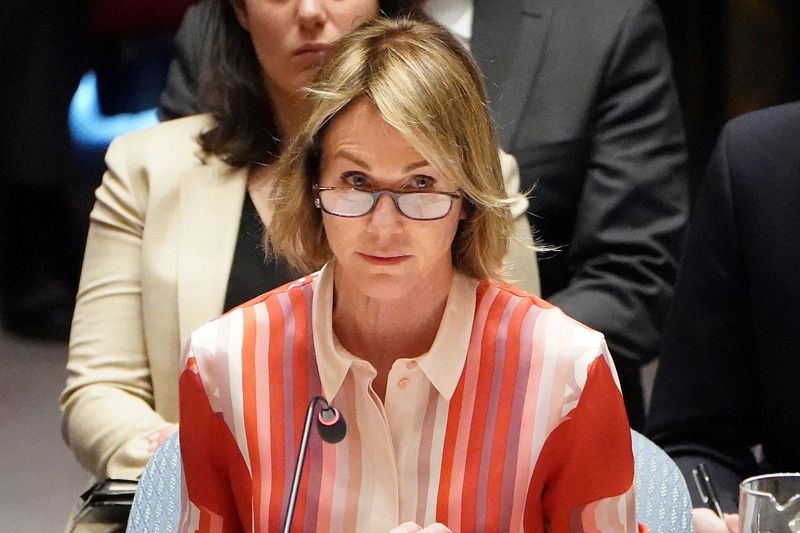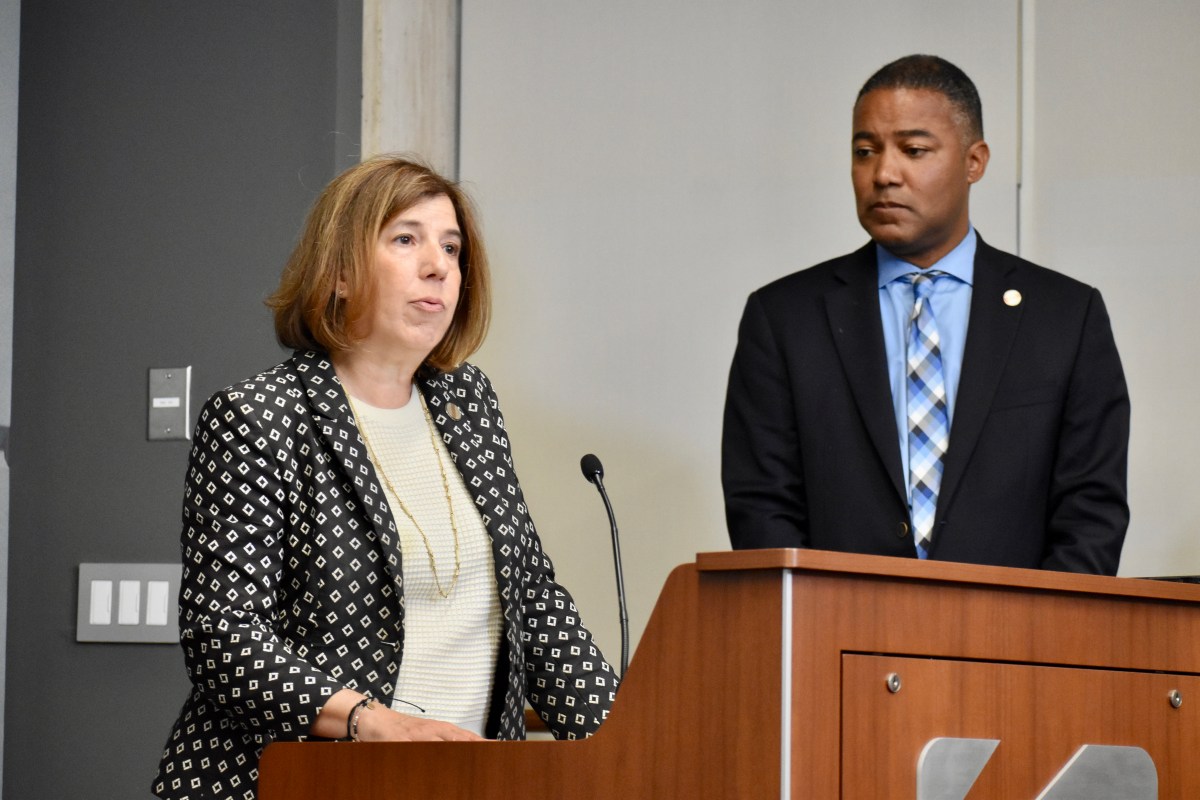NEW YORK (Reuters) – A Russian bid to halve access for humanitarian aid deliveries to Syria from Turkey to just one border crossing failed at the United Nations Security Council on Wednesday, garnering just four votes in favor from the 15-member body.
Russia and China cast vetoes on Tuesday to block the council from extending its approval for a year of aid deliveries to Syria from Turkey through two border crossings. Russia then put forward its own text that would only approve one of those crossings for aid access for six months.
U.S. Ambassador to the United Nations Kelly Craft told Reuters she had urged her Security Council counterparts – who all voted in favor of Tuesday’s resolution – to oppose Russia’s draft resolution, describing the choice as “good versus evil.”
“We’re talking about the difference between life and death for millions of Syrians,” she said, adding that council members should continue to push to keep two border crossings open.
Russia and China have argued that cross-border aid deliveries are not needed as those areas can be accessed from within Syria.
The more than six-year long cross-border aid operation is currently authorized until Friday, so diplomats said another council member is now likely to put forward for a vote a new proposal to authorize the two Turkish crossings for six months.
A resolution needs nine votes in favor and no vetoes by Russia, China, the United States, France or Britain.
During the coronavirus pandemic the council has been operating virtually, which means members have 24 hours to cast a vote on a draft resolution. Seven council members voted against the Russian draft on Wednesday, while four abstained.
Craft accused Russia and China of wanting to end all cross-border humanitarian assistance for Syria in an effort to help “prop-up” Syrian President Bashar al-Assad’s government.
A crackdown by Syrian President Bashar al-Assad on protesters in 2011 led to civil war, with Moscow backing Assad and Washington supporting the opposition. Millions of people have fled Syria and millions are internally displaced.
(Reporting by Michelle Nichols; Editing by Aurora Ellis)


























